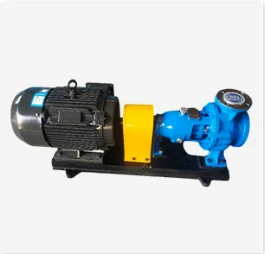TEL:
+86 13120555503
English
- Afrikaans
- Albanian
- Amharic
- Arabic
- Armenian
- Azerbaijani
- Basque
- Belarusian
- Bengali
- Bosnian
- Bulgarian
- Catalan
- Cebuano
- Corsican
- Croatian
- Czech
- Danish
- Dutch
- English
- Esperanto
- Estonian
- Finnish
- French
- Frisian
- Galician
- Georgian
- German
- Greek
- Gujarati
- Haitian Creole
- hausa
- hawaiian
- Hebrew
- Hindi
- Miao
- Hungarian
- Icelandic
- igbo
- Indonesian
- irish
- Italian
- Japanese
- Javanese
- Kannada
- kazakh
- Khmer
- Rwandese
- Korean
- Kurdish
- Kyrgyz
- Lao
- Latin
- Latvian
- Lithuanian
- Luxembourgish
- Macedonian
- Malgashi
- Malay
- Malayalam
- Maltese
- Maori
- Marathi
- Mongolian
- Myanmar
- Nepali
- Norwegian
- Norwegian
- Occitan
- Pashto
- Persian
- Polish
- Portuguese
- Punjabi
- Romanian
- Russian
- Samoan
- Scottish Gaelic
- Serbian
- Sesotho
- Shona
- Sindhi
- Sinhala
- Slovak
- Slovenian
- Somali
- Spanish
- Sundanese
- Swahili
- Swedish
- Tagalog
- Tajik
- Tamil
- Tatar
- Telugu
- Thai
- Turkish
- Turkmen
- Ukrainian
- Urdu
- Uighur
- Uzbek
- Vietnamese
- Welsh
- Bantu
- Yiddish
- Yoruba
- Zulu
Telephone: +86 13120555503
Email: frank@cypump.com
Feb . 15, 2025 15:25 Back to list
Pipeline Pump
An effluent pump is a crucial component in wastewater management systems, commonly used in both residential and commercial settings. These pumps are designed to handle the outflow of wastewater from septic tanks or effluent treatment systems. Unlike sewage pumps that can process solid waste, effluent pumps are tailored for transferring partially processed liquids, often after primary solids have settled. Thus, they play a vital role in maintaining the effective functionality of septic systems and in preventing backups and overflows that can cause environmental and health hazards.
Installation and maintenance also play considerable roles in the effective use of an effluent pump. Proper installation by qualified professionals can prevent early wear and potential failures. Regular maintenance, which includes checking and cleaning the pump and its components, will help extend its operational life. Users should routinely inspect for any unusual sounds or performance issues, address them promptly, and consult with specialists for professional advice or repairs when necessary. The environmental impact is another area where effluent pumps demonstrate substantial value. By facilitating the proper treatment and dispersion of wastewater, these pumps reduce the risk of contaminating local waterways and groundwater supplies. This is particularly important in areas where the natural ecosystem is sensitive to changes in water quality. Additionally, efficiently managed effluent systems contribute to lowering the carbon footprint associated with wastewater processing. Choosing an effluent pump is not just about selecting any model on the market. It requires careful assessment of the system requirements, environmental factors, and desired features to ensure the most efficient, reliable, and cost-effective solution. Consulting with experts who have experience in wastewater management can provide invaluable insights and recommendations tailored to the specific needs of your application. In essence, the effluent pump is a silent yet indispensable hero in the background of wastewater management. With proper selection, installation, and maintenance, it ensures the smooth operation of septic systems, protects the environment, and complies with health regulations. Investing in a quality effluent pump is, therefore, a sound decision for anyone relying on septic systems, ensuring peace of mind and long-term savings.


Installation and maintenance also play considerable roles in the effective use of an effluent pump. Proper installation by qualified professionals can prevent early wear and potential failures. Regular maintenance, which includes checking and cleaning the pump and its components, will help extend its operational life. Users should routinely inspect for any unusual sounds or performance issues, address them promptly, and consult with specialists for professional advice or repairs when necessary. The environmental impact is another area where effluent pumps demonstrate substantial value. By facilitating the proper treatment and dispersion of wastewater, these pumps reduce the risk of contaminating local waterways and groundwater supplies. This is particularly important in areas where the natural ecosystem is sensitive to changes in water quality. Additionally, efficiently managed effluent systems contribute to lowering the carbon footprint associated with wastewater processing. Choosing an effluent pump is not just about selecting any model on the market. It requires careful assessment of the system requirements, environmental factors, and desired features to ensure the most efficient, reliable, and cost-effective solution. Consulting with experts who have experience in wastewater management can provide invaluable insights and recommendations tailored to the specific needs of your application. In essence, the effluent pump is a silent yet indispensable hero in the background of wastewater management. With proper selection, installation, and maintenance, it ensures the smooth operation of septic systems, protects the environment, and complies with health regulations. Investing in a quality effluent pump is, therefore, a sound decision for anyone relying on septic systems, ensuring peace of mind and long-term savings.
Share
Next:
Latest news
-
ISG Series Vertical Pipeline Pump - Chi Yuan Pumps Co., LTD.|Advanced Hydraulic Design&Energy-Efficient Solutions
NewsJul.30,2025
-
ISG Series Vertical Pipeline Pump - Chi Yuan Pumps Co., LTD.
NewsJul.30,2025
-
ISG Series Vertical Pipeline Pump - Chi Yuan Pumps Co., LTD.|energy-efficient fluid handling&industrial durability
NewsJul.30,2025
-
ISG Series Vertical Pipeline Pump - Chi Yuan Pumps | Advanced Engineering&Industrial Efficiency
NewsJul.30,2025
-
ISG Series Pipeline Pump - Chi Yuan Pumps | High Efficiency, Energy Saving
NewsJul.30,2025
-
ISG Series Vertical Pipeline Pump-Chi Yuan Pumps|High Efficiency&Reliable Performance
NewsJul.29,2025










